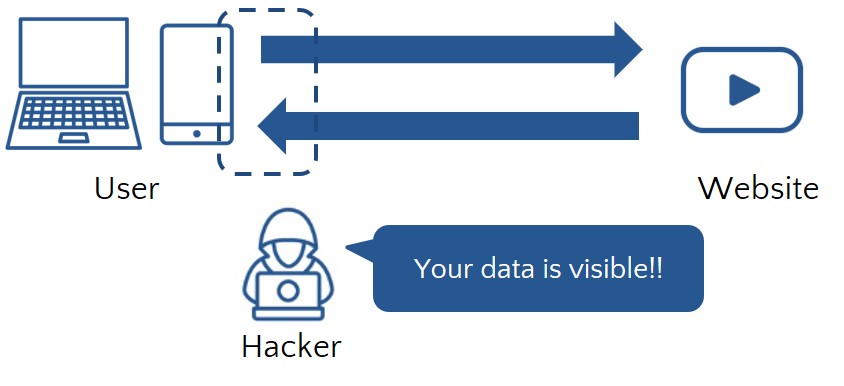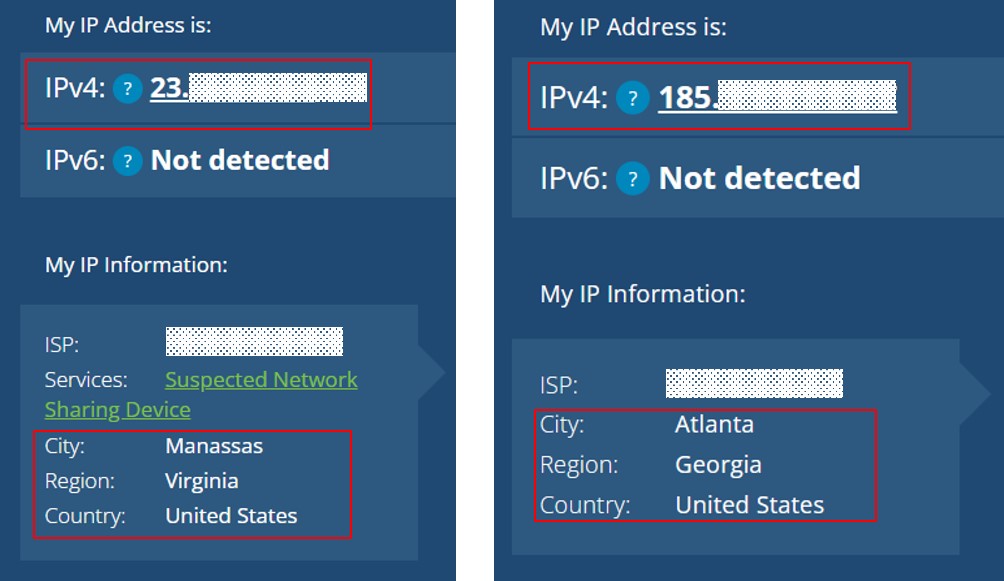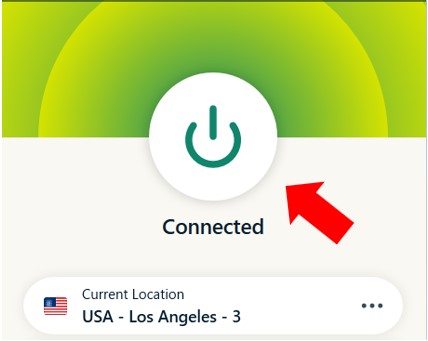When you disconnect your VPN, you disable its security and privacy protections. Without a virtual private network, your connection is less secure, potentially putting you at risk. Additionally, by turning off the VPN, you could lose access to certain content and services. It’s generally recommended to keep your VPN connected at all times, particularly if you’re using public Wi-Fi to exchange important information, or if you need to access certain geographically restricted content. In this article, we will delve into what exactly happens when you turn off your VPN.
What Happens When You Turn Off the VPN?
Turning off the VPN will result in the following:
- Your Data Will Not be Encrypted
- Your IP Address Will Be Exposed
- Geo-blocking Will Apply
Your Data Will Not be Encrypted
Personal information and vital data are left unprotected, increasing the risk of data interception and tampering by third parties, such as hackers.

With a VPN, your online activity is routed through an encrypted tunnel, ensuring that nobody can intercept your information, thereby maintaining privacy online.
Your IP Address Will Be Exposed
An IP address is a unique identifier for your device on the internet or a local network. On the left side, you have an IP address from accessing the internet without connecting to a VPN, while on the right side, you have an IP address from accessing the internet through a VPN server, even if you are in the same physical location. Without a VPN, it’s much more likely that your location and your online activity, including search history, could be tracked.

Geo-blocking Will Apply
Some content may not be accessible in your country or when you’re overseas because of access regulations imposed by service providers and government regulations. The practice of restricting access based on the region or country is also known as “geo-blocking”. Websites determine where they are accessed from based on the location of the IP address, and show content based on that determination. By using a VPN, you can unblock websites because it changes and hides your IP address, regardless of where you are.
When to Turn Off the VPN?
Generally, there are three primary instances when you should consider turning off the VPN;
- To Improve Your Internet Connection Speed
- When There’s a High Level of Security for the Original Connection
- If There Are Access Restrictions Due to VPN Connection
To Improve Your Internet Connection Speed
Using a VPN may result in slower transmission speeds due to the processing time required for encryption. Turning off the VPN can improve connection speeds because the encryption process is no longer necessary. Such situations might include instances when you need maximum speed for large file downloads or uploads, or when accessing local network devices like printers. However, it is important to keep in mind that the improvement in connection speed depends on the original Internet connection conditions.
When There’s a High Level of Security for the Original Connection
VPNs are used to enhance security. Thus, if the security level of the original connection environment is considered high, there should be no problem if the VPN is turned off.
If There Are Access Restrictions Due to VPN Connection
Some websites and online services may not be accessible if you are using a VPN connection. For example, certain online banking services may flag VPN usage as suspicious. This is because the service provider can detect that you are using a VPN connection and may block it. In such cases, you will need to turn off the VPN to use the website and online services.
When Should You Keep Your VPN Turned On at All Times?
There are scenarios where maintaining a constant VPN connection is advisable:
- When Using Free Public Wi-Fi Networks
- When Sending Confidential Information
- When Using the Internet in Countries with Strict Internet Regulations
- When Accessing Content Outside Your Country of Residence
- When Avoiding Bandwidth Limitations
When Using Free Public Wi-Fi Networks
With a VPN, your online activity is routed through an encrypted tunnel, ensuring that your information remains private. This is especially crucial when using free public Wi-Fi networks, as these are open networks that pose security risks.
When Sending Confidential Information
Using a VPN is safer when transmitting critical data, such as payment card information. There’s no need to worry about passwords or payment details being intercepted and misused.
When Using the Internet in Countries with Strict Internet Regulations
Some countries impose heavy restrictions on internet access, such as China, Russia, and Iran. By keeping your VPN always connected, you can freely access internet content despite these restrictions.
When Accessing Content Outside Your Country of Residence
A VPN allows you to mask your actual location. For instance, you could be in Germany or India, but appear as if you were in the United States. This feature allows you to access content unavailable in your current location.
When Avoiding Bandwidth Limitations
Bandwidth refers to the maximum volume of data transmitted over an internet connection within a specific period. Some internet providers impose bandwidth limits, often to manage network congestion. Using a VPN allows you to bypass these limitations, ensuring unrestricted streaming and online gaming. This is possible because VPNs encrypt your traffic, preventing your ISP from seeing and throttling your activities.
FAQ
Should I Keep My VPN On All the Time?
Yes, VPNs provide significant online security. It is recommended to keep your VPN on at all times to protect against data leaks and cyberattacks, especially when you’re using public Wi-Fi. A VPN also helps to safeguard your privacy from intrusive entities like Internet Service Providers (ISPs) or advertisers.
How Do I Turn Off the VPN?
To disconnect your VPN connection, you’ll need to access the settings of the device you’re using or within the VPN app itself. For instance, with ExpressVPN, a VPN service highly recommended on this site, you can effortlessly toggle the VPN on and off by simply clicking on the app’s power button.

Why Does the VPN Turn On By Itself?
In most cases, a VPN turns on automatically due to the settings within the VPN app. If the “Auto Connect” option is selected in your VPN application settings, the VPN will automatically activate as soon as you connect to the internet. The VPN auto-connect feature ensures you won’t browse the internet unprotected, as it automatically connects you to a VPN server. However, it is possible to manually change these ON/OFF settings.
Conclusion
- In conclusion, turning off the VPN can result in “Unencrypted Data”, “Exposed IP Address”, and “Applicability of Geo-blocking”.
- Typically, appropriate occasions to disable your VPN may include “To Improve Your Internet Connection Speed”, “When There’s a High Level of Security for the Original Communication” and “If There Are Access Restrictions Due to VPN Connection”.
- However, There are scenarios where maintaining a constant VPN connection is advisable. This includes situations such as “When Using Free Public Wi-Fi Networks”, “When Sending Confidential Information”, “When Using the Internet in Countries With Strict Internet Regulations”, “When Accessing Content Outside Your Country of Residence and When Avoiding bandwidth limitations”.